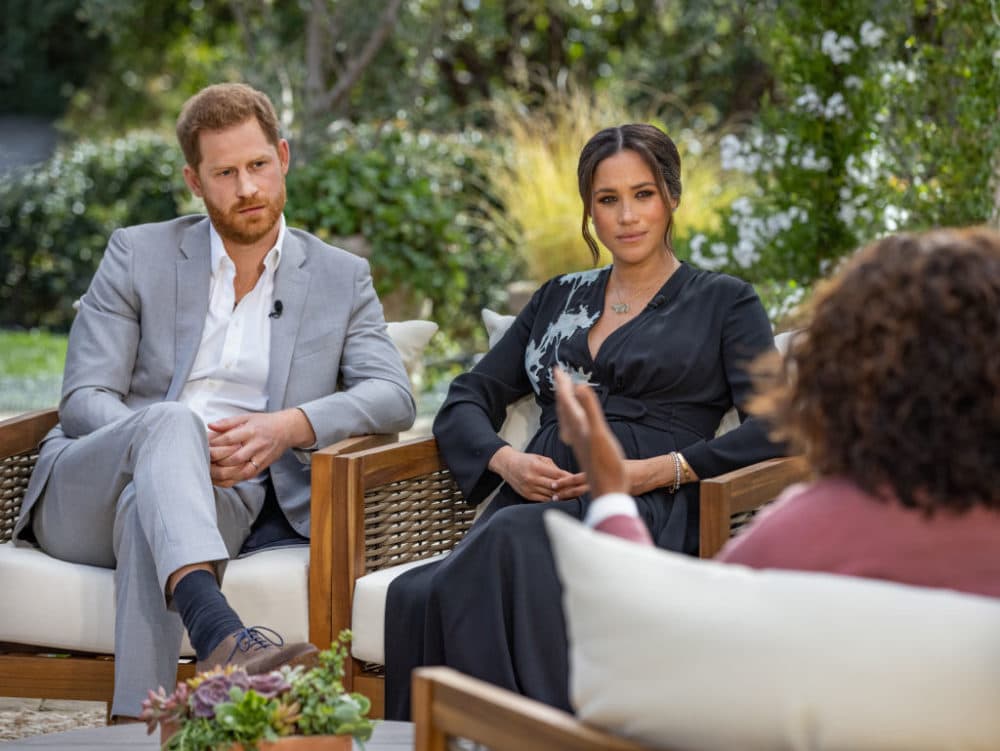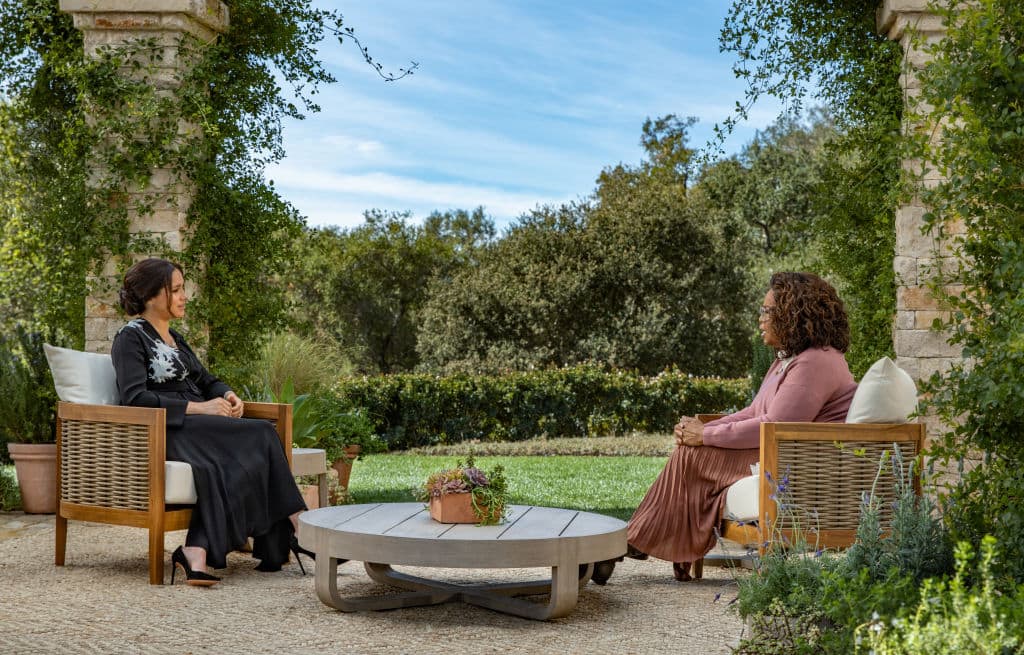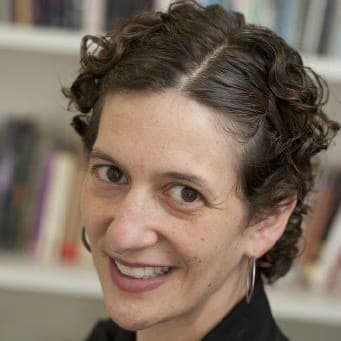Advertisement
Commentary
The Royal Family Can No Longer Avoid The Politics Of Race

On the British Royal Family's official website, two sentences are printed in bold in a section about employment in the royal household. "We would never want a certain type," announces a page devoted to diversity. “The key is to be different and individual.”
I kept returning to this statement as I watched Prince Harry and Meghan Markle’s conversation with Oprah Winfrey, which aired on CBS last night. During the sometimes anguishing interview, which stretched over two hours, the Duke and Duchess of Sussex explained their failed attempts to change a palace culture that they described as hidebound, fearful and racist. Is Meghan and Harry’s the kind of difference and individualism that the palace had in mind when they crafted their diversity statement? Perhaps those in "the firm” have to play by different rules than those who work for it.
Certainly, Harry and Meghan pose a new set of challenges for the palace. While there is a long tradition of royal women giving lie to the fairy tale — already back in 1820 Queen Caroline launched a popular crusade to expose her husband George IV’s philandering — such revelations have typically turned on what we would call “women’s issues.” These include bitterness over a sexual double standard, infidelity, unreasonable expectations about body image, fertility, desire, family dynamics and a lack of autonomy. This is why Meghan's brave and honest opinion piece in The New York Times last fall, in which she discussed her miscarriage, was not particularly controversial.

Last night, though, we witnessed something different. Against that lush Montecito backdrop, Meghan and Harry may have worried about “history repeating itself,” a clear reference to Harry's mother, Princess Diana, but their troubles stem as much from racism as from sexism, amplified by social media. On this point, they did not mince words. In the interview’s most disturbing moments, Meghan (who is biracial) and Harry discussed the “concerns” raised by palace insiders about the potential skin color of their son, Archie. They also expressed sadness that the palace had refused to go on record defending the couple in the face of the vitriol leveled at them by the British tabloid press. There was a missed “opportunity,” Harry observed, “for my family to show some public support.”
The question on many people’s minds today, of course, is how will the palace respond? On the gender front, they have offered some remedies in recent years. In 2013, the Succession to the Crown Act abolished male preference in the line of succession. And attitudes towards divorce have eased up considerably since the days of Wallis Simpson and Princess Margaret. But what about the “race element”? Is the royal family ready to confront “unconscious bias” (to quote Harry) and the politics of intersectionality?
Following last night’s master class in storytelling, the palace will be hard-pressed not to comment. And to comment in a way that reflects serious engagement with racism and sexism. The interview airs in the U.K. today, on International Women’s Day and Commonwealth Day — formerly Empire Day. And it comes on the heels of allegations against Prince Andrew for his ties to Jeffrey Epstein. The royal family will need to engage #MeToo and Black Lives Matter together.
Advertisement
After all, these are not just private concerns. Since the 18th century, the royal family has strived to model a set of behaviors for the nation. That decision has kept the monarchy relevant, but it also comes with a steep price tag. Emulation and identification can serve the Windsors well — as, for example, when the Queen boosted morale last spring at the peak of the COVID crisis, reminding her constituents of their resilience in a televised address. But it can also turn against them. We saw this in the days following Princess Diana’s death, when palace reserve was interpreted as callousness. And we will likely see it in the days to come, as those who see themselves in Meghan question the monarchy’s commitment to multiculturalism.
The nation needs that commitment. If the past few years are an indicator, structural racism is as endemic in Britain as in the United States. In her televised remarks for Commonwealth Day, which aired in the U.K. yesterday, the Queen spoke of a “renewed sense of closeness and community.” But that doesn’t negate the xenophobia, discrimination and biases reflected in national policies and popular sentiments. Consider, for instance, the recent struggles of the “Windrush generation” — those who emigrated from the Caribbean to the U.K. between 1948 and 1971 — to prove their citizenship. Or how COVID-19 has disproportionately impacted Britain’s minority populations. There’s a reason protestors took to the streets last spring.
To be sure, Elizabeth II is not responsible for these developments (and Harry and Meghan took great pains to acknowledge the Queen’s welcoming spirit). But she is the nation’s ceremonial figurehead. As head of state and head of the Commonwealth, the Queen, together with other “senior” royals, can — and do — represent. Let’s hope they represent better in the days leading up to the birth of Archie’s sister.
